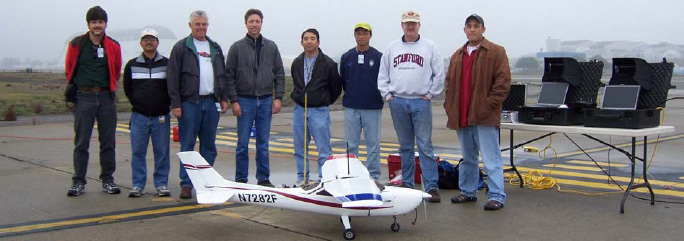Untitled Document
Unmanned Aerial Vehicles have demonstrated potential as being effective platforms for supporting scientific and exploratory missions. They are capable of performing long endurance flights, and reaching remote areas that may be too dangerous for humans. As their role and types of missions expand, challenges are presented which require onboard systems to have increasingly higher levels of intelligence and adaptability. Missions requiring radical reconfiguration to carry mission-specific payloads, or operations under uncertain or unknown flight conditions, will require intelligent flight controllers that are capable of being deployed with minimal prior testing. This paper describes the testing of a neural adaptive flight controller that was designed to provide consistent handling qualities across flight conditions and for different aircraft configurations. The controller was flight tested on an unmanned experimental aerial vehicle, without the benefit of extensive gain tuning or explicit knowledge of the aircraft’s aerodynamic characteristics. An overview of the neural adaptive flight controller is presented, along with a description of the experimental aerial vehicle test platform, and flight test results that demonstrate a dramatic improvement in handling qualities resulting from neural adaptation.
To read all the details of this article, click here.

Click here to return to the main article list.